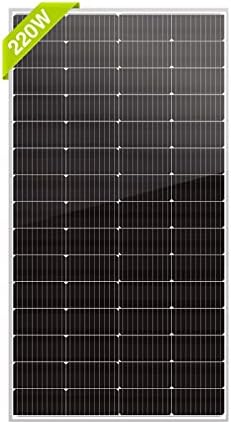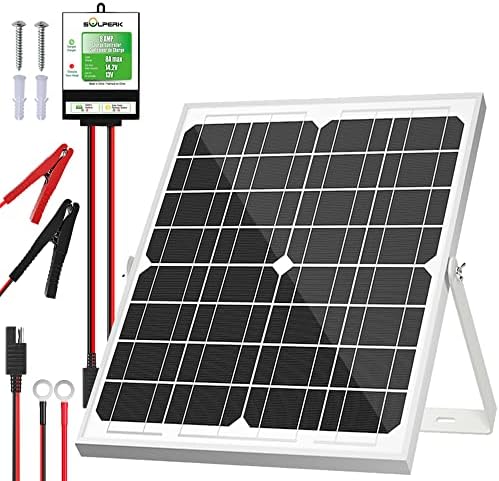# Top 5 Things to Consider Before Installing Solar Panels
When I made the leap to live off the grid, my biggest concern was energy. Living sustainably meant rethinking my power sources entirely, and after some research and enthusiastic conversations with fellow off-gridders, I decided to install solar panels. Electric bills propelled me toward this decision, but the journey wasn’t just about saving money. It was about harnessing the sun’s incredible energy, giving me a sense of freedom and independence. If you’re considering making this switch, there are some crucial factors to weigh that can transform your solar panel experience from a daunting endeavor into a sunny success.
## 1. Assess Your Energy Needs
Before you dive headfirst into this solar venture, it’s essential to understand your energy consumption. How much electricity do you use monthly? Create a comprehensive list of your appliances and their power ratings. Consider how much you value your energy—would you rather run a washing machine or power a gaming system? Analyzing your usage allows you to make an informed decision about how many panels you need.
### Pro Tip:
Keep track of your energy use over a few months to gather an informed average. Consider seasonal changes, especially if you use heating or cooling systems that significantly affect your monthly consumption.
## 2. Location, Location, Location
Your physical location dramatically influences your solar panel efficiency. Geographic and climatic factors, such as sunshine hours, weather conditions, and seasonal sunlight availability, play critical roles in your solar energy production.
Evaluate the sun exposure of your installation site. Ideally, south-facing roofs with little shade will maximize your panels’ performance. Angle also matters: the optimal tilt varies between locations, ensuring you capture the maximum amount of sunlight.
### Pro Tip:
Consult solar mapping tools that provide detailed assessments of solar energy potential in your area. These resources can help you visualize how much sunlight your property receives throughout the year!
## 3. Costs and Financing
Solar panels can be a significant investment, but the long-term benefits often outweigh the upfront costs. Besides the price of the panels themselves, consider installation fees, permits, and potential maintenance costs.
Additionally, explore financing options. Some local and federal programs offer incentives, including tax credits and rebates, that can help reduce your expenses. Investigating these options can lead to substantial savings in the long run.
### Pro Tip:
Always get multiple quotes from different providers. This practice can not only save you money but also help you gauge the average price in your area while ensuring you’re getting a trustworthy contractor.
## 4. Choosing the Right Technology
When considering installing solar panels, you’ll encounter various technologies, including photovoltaic (PV) and concentrated solar power (CSP). PV panels are the most common type for residential use, converting sunlight directly into electricity, while CSP systems utilize mirrors or lenses to focus sunlight, generating heat.
Familiarize yourself with different types of solar panels and their efficiencies. Monocrystalline panels are typically more efficient and take up less space, while polycrystalline panels are cost-effective and widely available, albeit less efficient. The choice should align with your needs, budget, and space constraints.
### Pro Tip:
Don’t hesitate to ask installers about the specific models they carry. Research their warranties and expected lifespans, as quality and durability can significantly impact your investment over time.
## 5. Maintenance and Longevity
Solar power is often touted as a hassle-free source of energy, and while that’s largely true, there are still maintenance factors to consider. Dust, debris, and even bird droppings can impede efficiency. You want to make a habit of checking your panels regularly and cleaning them when necessary.
Moreover, your system’s longevity is crucial. Most solar panels come with warranties ranging from 20 to 25 years, but their actual lifespan can extend beyond that with proper care.
### Pro Tip:
Consider investing in monitoring tools that allow you to keep tabs on your solar panel performance remotely. These devices can alert you to decreases in efficiency or malfunctions, letting you address issues before they lead to more significant problems.
—
### Conclusion
The decision to install solar panels is one of the most impactful choices you can make for both your wallet and the planet. It’s empowering to produce your own energy, reduce your carbon footprint, and contribute to a sustainable future. By considering your energy needs, location, costs, technology, and maintenance, you can ensure that your transition to solar energy will be as smooth and rewarding as possible.
With these tips in mind, you’re well on your way to becoming a solar-savvy homeowner, ready to bask in the bright, renewable light of the sun! So grab your notepad, do your research, and get ready to take the plunge into a more sustainable lifestyle. Welcome to the sunny side!



